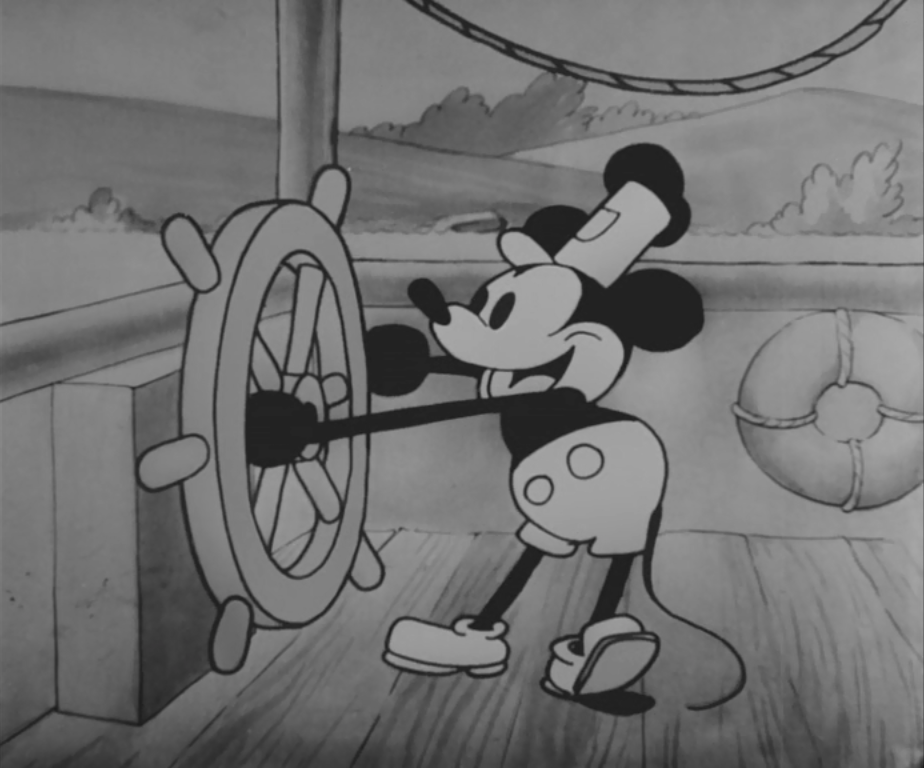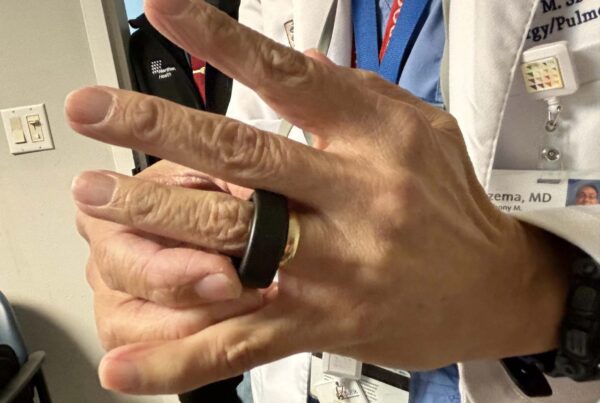Public Domain Day is among the annual milestones the beginning of each new year brings. On Jan. 1, a new group of cultural works created 95 years ago lose copyright protection.
Now, anyone can copy, republish and redistribute these characters, written works, or music, as they like. And with AI in the mix, 2024 has already brought some… interesting and ambitious reimaginings of familiar artifacts.
The new public domain works include the first version of Mickey Mouse, Peter Pan, the original German version of the novel, “All Quiet on the Western Front” and much more.
Glenn Fleishman is a reporter and printing historian. He joined the Standard to discuss and says key legal rulings are responsible for each year’s new collection of public domain works. But the law is very specific about what aspects and versions of those words, films, songs and compositions now belong to all of us.
Listen to the interview above or read the transcript below.
This transcript has been edited lightly for clarity:
Texas Standard: I understand you’ve been tracking and writing about copyrighted works entering the public domain for many years. What got you interested in these cultural turning points in the first place? Why do they matter so much?
Glenn Fleishman: It’s a funny thing. There’s so many copyright oddities. That’s what drew me in.
I’m a freelance reporter, so you look for a some kind of interesting thread, and when you pull the thread on things like the history of Sherlock Holmes short stories, for instance, which gradually entered the public domain recently – but some of the stories were protected even when the rest of the work had already entered the public domain in the United States… Or “Bambi”, which is a ridiculous story that involves fleeing from Austria to Switzerland. Walt Disney, a hero of Israel who was married to this daughter of the guy who wrote the story. Like it goes on and on.
And so I got intrigued by all these stories around copyright that had become extended beyond what people originally expected. And that led me into a deeper study of the public domain itself.
And then this remarkable event happened just a few years ago, where after a long period in which nothing entered the public domain in the United States by year, suddenly there was this great opening because a period had ended, and we’re now in this glorious efflorescence of new material every year for the next several decades.
A case in point might be what a lot of folks are talking about right now with Mickey Mouse. That character clearly evolved over the decades. But as I understand it, the character that’s coming into the public domain this year is one iteration of Mickey Mouse. We should be clear about that, right? Or else Disney’s attorneys are going to be on it.
Yeah. Just like Winnie the Pooh, you know? Was he wearing a red shirt or not last year?
There’s an aspect that got decided, actually, in a case involving Sherlock Holmes – it’s the case of Sherlock Holmes that I wrote about a few years ago for The Economist. The Sherlock Holmes estate had been very litigious, and represents some of Arthur Conan Doyle’s, uh, like, not direct descendants. It’s also a very complicated story. And, someone had want to produce a new book of Sherlock Holmes kind of riffs. And they said, “clearly, we can use Sherlock Holmes because the early works are falling into the public domain.”
So in this lawsuit, it went to appeal. And the great jurist Richard Posner wrote this detailed response, and it said that you actually can’t copyright a character as a whole. So Mickey Mouse, as he appears in “Steamboat Willie” or other works in 1928, that is a character in its entirety. And that character has certain characteristics.
And so this appeals decision, which was never overturned, says that characteristics can accrue over time. So maybe Mickey Mouse starts wearing white gloves later, or maybe he becomes cheerier, or maybe his depiction changes. So a 1940 depiction of Mickey Mouse, if it’s substantially different, could still have the basis of copyright protection interest. This 1928 version would still be available for free use.
But in the case of Mickey, the Steamboat Willie iteration, it’s already been remixed quite a bit, I understand. I’ve seen some of these, uh, it looks like a slasher film starring the steamboat version of Mickey Mouse. Did I pick up on that right?
I know there’s a slasher Winnie the Pooh from last year that got terrible reviews that I have not seen. I don’t know if anyone had something in preparation. It would be perfectly legal if last year or at any point, you had created something with that version of Mickey or around that version of Mickey and had just released it after Jan. 1.













